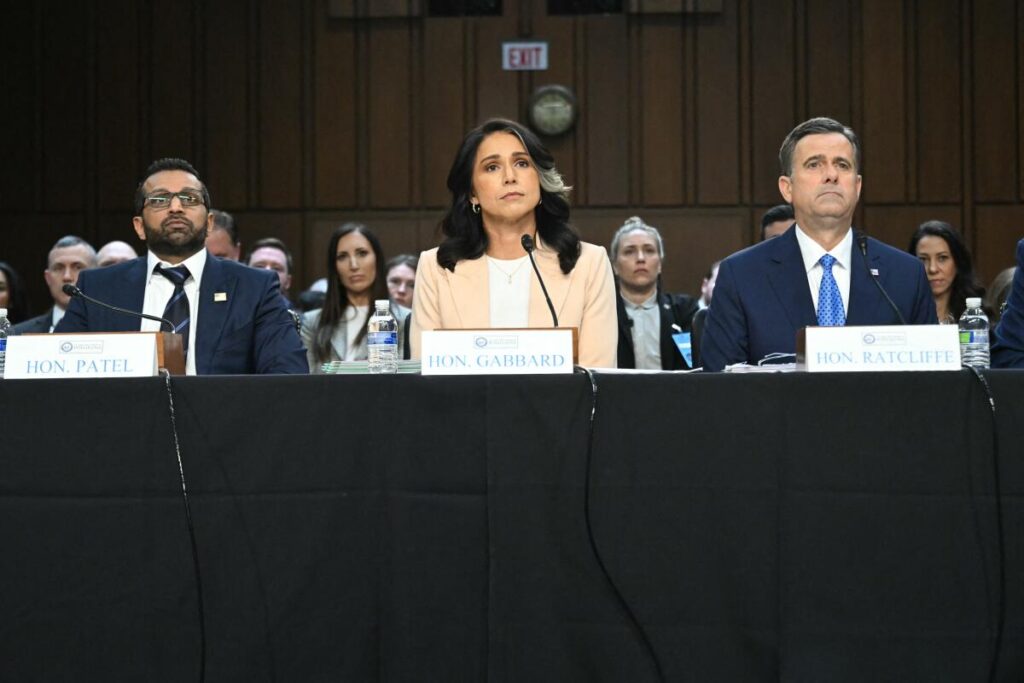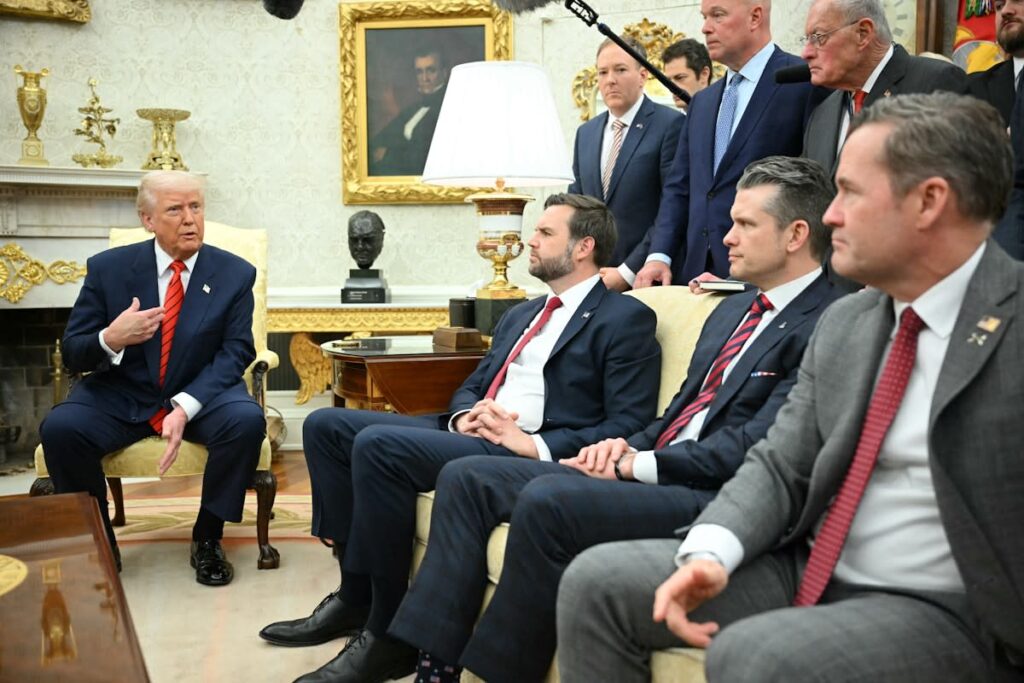US President Donald Trump and top intelligence officials have downplayed concerns over a significant security breach that occurred when journalist Jeffrey Goldberg was inadvertently added to a Signal group chat where senior US officials discussed planned military airstrikes in Yemen.
The breach occurred during a tense Senate Intelligence Committee hearing, where US Director of National Intelligence Tulsi Gabbard and CIA Director John Ratcliffe faced questions about the incident. Both officials defended their actions, insisting that no classified information was disclosed during the chat. Despite these reassurances, the breach has sparked a wave of criticism, particularly from Democratic lawmakers, who have labeled it an “embarrassment” and a clear violation of national security protocols.

Goldberg, editor-in-chief of The Atlantic, was mistakenly added to the 18-member Signal chat, reportedly by National Security Adviser Mike Waltz or one of his aides. Initially, Goldberg questioned the authenticity of the messages, but he quickly realized their legitimacy when the Yemen airstrikes, which targeted Iran-aligned Houthi rebels, occurred as described. The airstrikes, launched on March 15, resulted in 53 deaths. Further attacks followed, including another round on Tuesday morning.
The controversy, which has come to be known as “Signalgate,” has raised serious concerns about the use of civilian messaging apps for high-level government discussions. This security lapse has led to a lawsuit and questions about whether officials violated established protocols by using such unsecured platforms to discuss sensitive military operations.
The original purpose of the Senate hearing was to focus on issues related to drug cartels and human trafficking. However, the breach quickly overshadowed the meeting, as lawmakers pressed Ratcliffe and Gabbard for more details. Ratcliffe denied that sensitive operational information, such as weapons, targets, or timing, had been shared. Gabbard added that there is a distinction between an “inadvertent release” of information and a “malicious leak.”

Trump has dismissed the breach as a “glitch” with “no impact at all” on military operations. He also came to the defense of Waltz, stating that the adviser had “learned a lesson” from the incident but was a “good man.” At a White House event, Waltz further criticized Goldberg, accusing him of attempting to stir up controversy instead of focusing on the administration’s successes.
Despite these reassurances from the administration, security experts have voiced concerns over the use of unsecured platforms like Signal for sensitive military discussions. The nonpartisan watchdog group, American Oversight, has filed a lawsuit against the officials involved, arguing that they violated the Federal Records Act by allowing messages to auto-delete instead of preserving them as required by law.
Lawmakers, particularly from the Senate Armed Services Committee, have demanded a full investigation into the breach. Senator Roger Wicker, the committee’s chair, has called for the investigation to be bipartisan and stressed that full transcripts of the group chat should be reviewed. Senator Jon Ossoff also condemned the incident, describing it as “utterly unprofessional,” and lamented the lack of an apology or acknowledgment of the severity of the mistake.
As the controversy continues to unfold, the debate over the security risks of using commercial messaging apps for government communications has intensified. The National Security Agency (NSA) had previously warned about vulnerabilities in Signal, further complicating the matter for the Trump administration, as it faces mounting scrutiny over its handling of classified information. The breach has added to ongoing concerns about the integrity of US intelligence operations and the protocols followed by top officials.




